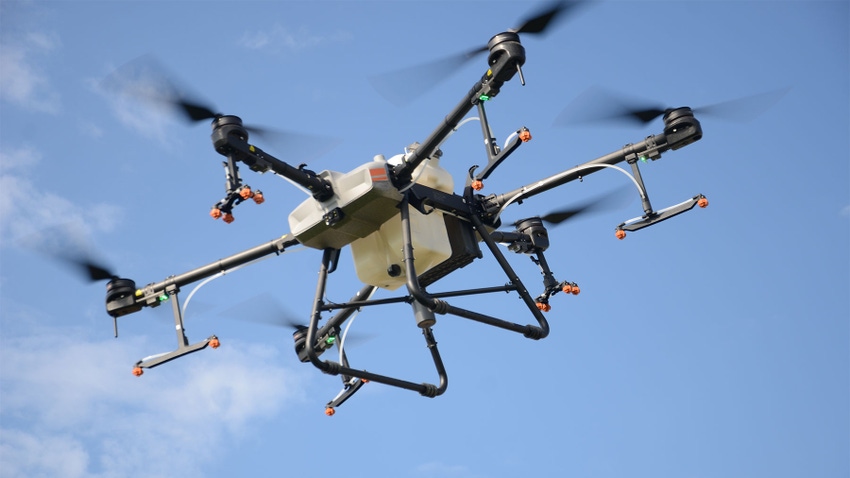November 24, 2023

Our son wants a drone to spray irregular fields and for custom work. Should we let someone else with a drone custom-spray for us instead?
The Indiana certified crop advisers panel answering this question includes Andy Like, independent crops consultant, Vincennes; Jeff Nagel, agronomist with Ceres Solutions, Lafayette; Marty Park, agronomist with Gutwein Seed Services, Rensselaer; and Dan Quinn, Purdue Extension corn specialist.
Like: Cost, availability and productivity of drones have gotten much better. So, the economics of owning your own drone is getting more favorable. To figure out if this will work for you, look at the life of the drone and the acres you can cover. Consider opportunity cost of your time, quantity of custom acres, and quality and timeliness of application. You may not know if it will pay its way until you buy it and try it on your farm.
Nagel: Assume a drone capable of making fungicide applications costs $30,000 and custom application with a drone is $14 per acre. It would take a little over 2,000 acres just to cover the cost of a drone. That is a lot of irregularly shaped fields. Additional custom application would be needed to justify the drone on your farm. Licensing is more involved when you start down the path of custom work.
Like any farming operation, efficiencies are gained by having larger fields. If the custom target is smaller and irregularly shaped fields, acres per day will be less. Travel distance, tendering the drone and streamlining what gets sprayed to expedite mixing and loading all impact efficiency.
There is definitely a place for drone applications. Many small fields are hard to spray by ground rig or airplane. Achieving good coverage is important for foliar disease control, especially tar spot. Drone applications are another tool. Thoughtful analysis is needed on whether to purchase a drone or hire it done.
Park: Do your homework before making this significant investment in time and money. Talk with the Office of the Indiana State Chemist and others currently making drone applications. Rules and requirements must be followed. Consider the time it takes to become legal. Drone applicators need to pass the Federal Aviation Administration Part 107 license test and complete appropriate state applicator licenses, including the Category 11 test for aerial application in Indiana. You will need a legal business entity and a business license for custom work. Insurance coverage requirements also must be met.
Once you decide on which drone and additional support equipment to purchase, you will need a trailer with a pesticide filling station for efficiency and a large generator to charge battery packs. You might invest $35,000 to $50,000 here. Before you do, consider potential net return as well as actual time commitment prior to flying and when applying. Compare to paying another drone applicator to do it.
Quinn: You and your son should speak with people already using spray drones commercially. Spray drones can be useful tools to reach difficult areas and to spray irregular and small fields. However, it requires certifications and testing to operate them commercially. It’s a large investment and often requires additional equipment beyond the drone. Do your research and talk to others who currently operate them commercially as you determine the best route for your farm.
You May Also Like




